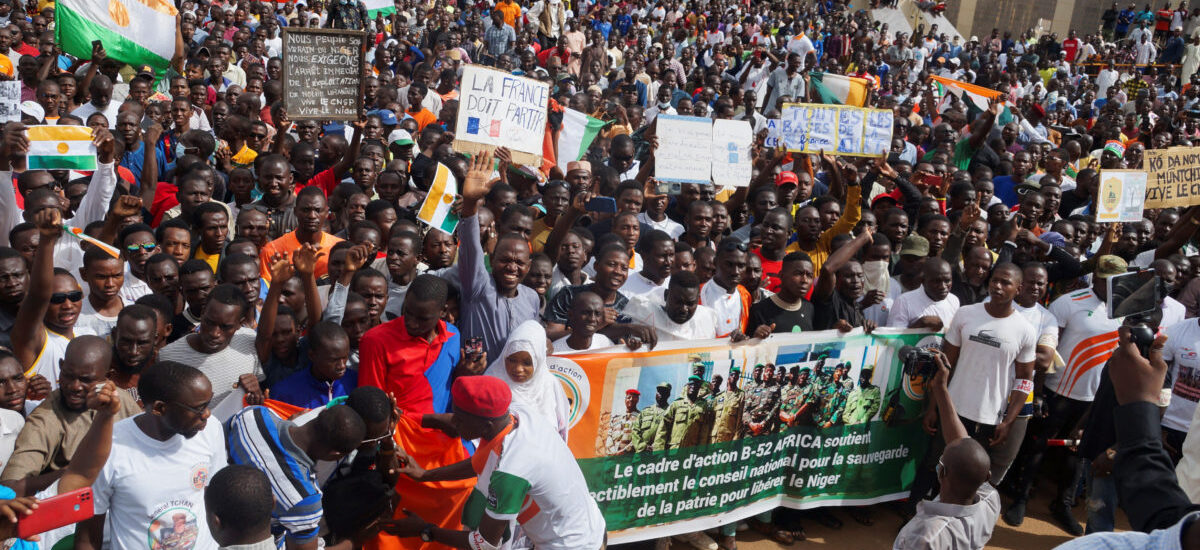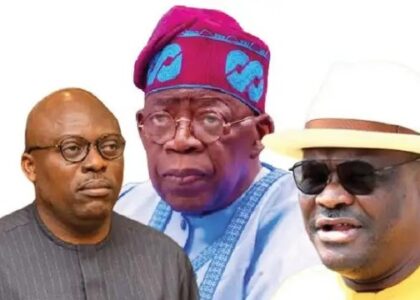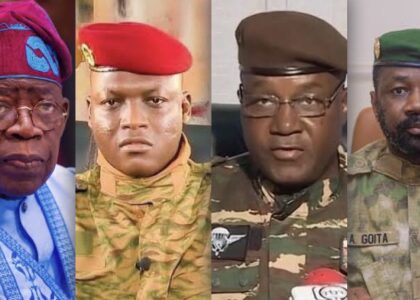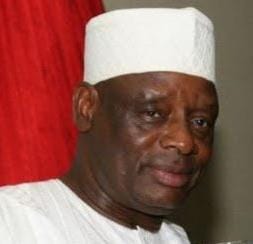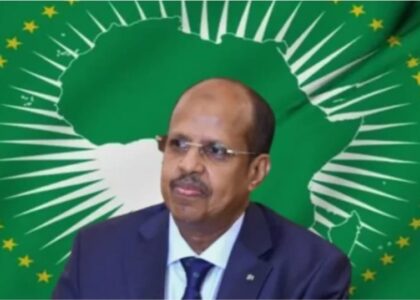When after the Extraordinary Summit held in Abuja on 30th July, 2023, the ECOWAS Authority of Heads of States and Government (ECOWAS Authority) announced its decision on Niger, there was hardly anyone who is familiar with the Region, as well as with the geographical, security and ethnic dimensions to the situation that did not doubt the hastiness of the ultimatum and the enforceability of the decision to use force.
In our post of 31st of July, 2023, we predicted enforcement challenges which have now come to weigh heavily on the decisions reached at that Extraordinary Summit of the ECOWAS Authority. We made the following remarks:
‘These decisions are ambitious, but their possible enforcement is problematic and remotely feasible. In the first place, it is unlikely that the borders of Mali and Burkina Faso will be closed to Niger. The possibility of non-closure of those borders is a huge advantage to the Putschists in Niger. With these two countries, Niger is actually in good company in a zone that has become an axis of coup.
In any event, ECOWAS Leaders themselves know how difficult it is to enforce collective border closure in the ECOWAS, either because some States would not faithfully implement closure or because of the porous borders up and down the Community.
Also, with the close cultural and ethnic ties between the Northern part of Nigeria and Niger, for instance, it is illusory to think that there can really be strict land border closure between the two countries, particularly in view of the lengthy majorly unmanned borders. We cannot ignore the fact that it seems the coup has earned the support of a part of the population, which in itself reflects the ethnic dimension that is implicit in the situation.
The entrenchment of the Wagner Group in Mali and their rumoured relationship with the junta in Burkina Faso should worry ECOWAS Leaders, given the strong possibility that the Coupists would gladly let them into Niger, should that give them even the remotest sense of survival. The signs are obvious. This possibility should greatly worry Nigeria; having such a renegade criminal armed group by the border of a country battling insurgency, is not conducive to peace.
Nigeria should also worry about the possible security risks from Nigerien themselves, given that a distabilised Niger is likely to cause an increase insurgency in Nigeria and definitely result to influx of refugees, which would further be a hit on Nigeria that is facing tough economic situation and also dealing with its own crowd of internally displaced people.
The long line of examples of the failure or inability of the Authority of ECOWAS to enforce its decisions and its perchance for shifting deadlines, do no inspire confidence that these decisions, particularly the no-fly-zone and the seven days ultimatum would be implemented. In any event, it remains to be seen, how the Authority would enforce the no-fly-zone. The same concern can equally be genuinely raised concerning the threat of military action.
The question to ask is how many ECOWAS States are able to commit their resources to military action at this time that many of them are facing economic and security challenges? Perhaps, they are hoping to rely on American and French Forces for the actualisation of the threat. If that is the case, hopefully, the Authority would carefully count the costs of such reliance on the region and the ability of ECOWAS to assert itself in its best interest.’
True to the fears expressed in that post, we have seen the geopolitics, ethnic, cultural, economic and national dimensions playing out. First, was the prompt warning by the Juntas in Burkina Faso and Mali that any ECOWAS’ military action in Niger would be regarded as a declaration of war against them as well. We have also seen the cultural, economic and ethnic dimensions that have played out in Nigeria, both within the Nigerian Senate and the public space, (especially in Northern Nigeria). In fact, the Northern Nigerian States neighbouring Niger, which essentially share the cultural, brotherly and language ties, have made it very clear that they would not accept any form of military action against Niger. These reactions from Nigerians, led to the absolute rejection by the Nigerian Senate of the request of the President of Nigeria and Chair of the ECOWAS Authority to be allowed to commit resources to military action in Niger.
It has also come to light that any such military intervention would have military participation beyond the shores of ECOWAS and would possibly involve the United States; France; Russia; and Algeria, all of which have expressed support for, or against, intervention. ECOWAS was heading towards a proxy war that no serious Community of States would wish to have within its sphere of influence.
We had also wondered why the Authority paid no attention to the seeming overwhelming support the Junta was getting from Nigeriens. In fact, on the day the deadline expired, we saw the massive rally Nigeriens had in their continuous show of support for the Junta. This further complicates the situation and raises the question of whose behalf, the ECOWAS Authority is acting.
Again, we cannot but wonder why the ECOWAS Authority decided to grandstand in the sort of hasty and ill-advised manner it did. It is not out of place to state that the leaders are better informed of the premises that justified the fears expressed across all sections of the Community over their decision and the consequence that may attend upon its implementation. What we struggle to understand is why the Authority did not allow proper caution and diplomacy, their right of place. In making this point, it is essential to state that the Authority may have been goaded by its past experiences in Mali, Burkina Faso and Guinea to relegate diplomacy to the backstage. In the three countries just mentioned, diplomacy has not yielded the needed result, thus portraying ECOWAS as a weak and ineffective organisation. What has now happened, however, should the Junta carry the day, would just obliterate whatever is left of the aura of the decisions of the Authority as afar as coup is concerned.
We believe ECOWAS’ confidence posture was, on 30th July, 2023, boosted by its supposition that the heavy non-military sanctions would compel the junta to yield before the deadline. Now that such has not happened and the military action is not likely to happen, it is apposite to call on the ECOWAS Authority to, for the sake of the people of Niger and ECOWAS member States that share borders with Niger, at its Summit of 10th August, 2023, review these indiscriminate sanctions in favour of tailored sanctions that punish the Junta and not the entire population. We particularly call on Nigeria to restore electricity to Niger in fidelity to its long standing agreement with Niger. Accordingly, at the Summit, we expect Nigeria to seek the exemption of the electricity arrangement with Niger from the bag of sanctions to ensure Nigeria does not continue in breach of its agreement. Should the bloc fail to act swiftly on these, there is going to be huge humanitarian and refugee crises in the region, for which the authority should be held responsible.
We had earlier called the attention of the Authority to the fact that the recent coups have been within the French Zone of the Community and also called on it to begin to take the ‘constitutional convergence principles’ of the 2001 Protocol on Democracy and Good Governance seriously as the entrenchment of democratic culture, through the rigorous implementation and the consequential entrenchment of the principles in the national sphere of member States is the only panacea to coups.
Without democratic culture, if the leaders would, let them call whatever they are operating ‘democracy’, the populace would always see through their lies and deception and yearn for an alternative. It is thus important that ECOWAS takes the needed proactive steps through the implementation of the convergence principles, starting with insistence on free, fair and credible elections, as well as respect for human and peoples’ rights in line with article 4 of the Revised Treaty of ECOWAS
The importance of this has been very much emphasised in the Niger episode, for which several pundits in ECOWAS matters have questioned the moral authority of ECOWAS Authority to condemn the Coupists in Niger when the legitimacy of the election of the Chairman of the Authority and President of the Federal Republic of Nigeria, President Bola Tinubu, is still being vehemently pursued in court and the election that bought him into office widely condemned as lacking in integrity by both local and foreign election observer groups. We had also counseled ECOWAS on the possibility of this perception and on the need not to make this a tradition. Added to this, is the rejection of the just concluded election in Sierra Leone by the opposition and the ongoing muzzling of the opposition in Senegal. The fact that both States where in the company of ECOWAS Authority Chair when the authority took the decision of 30th July, 2023 is quite telling of the democratic credentials of ECOWAS.
With all of these, it is difficult to win the support of ECOWAS citizens, and even of some elements in the military for the measures ECOWAS Authority ill-advisedly directed at Niger. It should therefore not surprise anyone at all, that citizens are not buying into it. Thus: despite the mouthed commitment to democracy and good governance, none of them has been achieved or they are at best wobbling. ECOWAS surely can do better!
We cannot conclude without reiterating the point that the way ECOWAS has faltered on this occasion, the effrontery of the Junta and the support it enjoyed from the Juntas in other States of the Community paint a bad picture and exacerbate the fears of likely coups or counter coups in the region. The ECOWAS Authority and the ECOWAS Commission must braze up to the situation, starting with the enforcement of the convergence principles. ECOWAS must act now to win the trust of its citizens.


